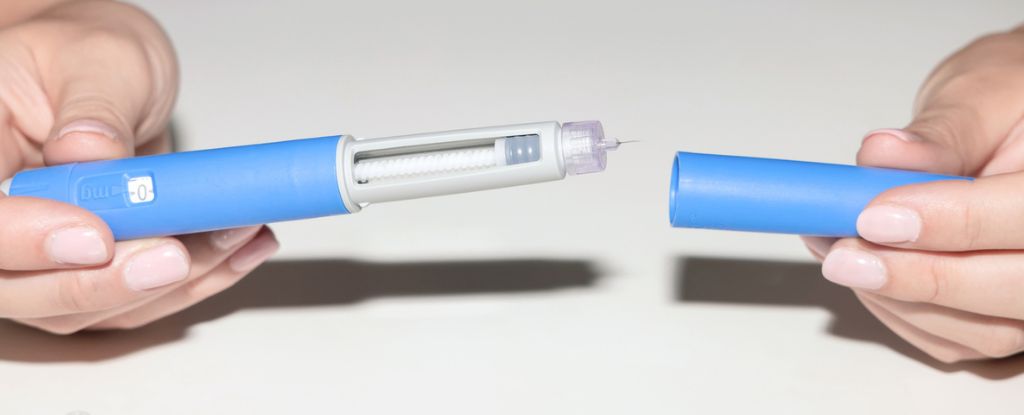Replace on AI within the health center
It kind of feels that information associated with synthetic intelligence (AI) is continuously afloat and this comprises the sphere of medication. There may be debate about the actual affect of AI – how a lot of it’s hype and what sort of is genuine construction that may turn into our generation?
As with many technological advances, it’s each. New generation, in all probability particularly in drugs, creates numerous preliminary hype, because the media reaches for sensational headlines and folks speculate about conceivable finish programs. The truth by no means rather suits this hype, no less than no longer to start with, however within the post-hype section the generation quietly improves within the background, infrequently even exceeding preliminary expectancies. Alongside the way in which we be informed what the brand new generation can and can not do, so expectancies develop into a lot more lifelike.
One thing an identical appears to be true for AI – because the hype has died down moderately, the generation continues to advance, whilst researchers proceed to search out new programs. We’re discovering that the new crop of AI programs are specifically smartly suited for sure duties that experience programs within the health center. There are two duties which might be specifically helpful – AI is excellent at recognising patterns and turning loads of data into coherent summaries. How do those follow in drugs?
Trend reputation, as any skilled clinician can inform you, is central to creating a prognosis. There are necessarily two approaches to prognosis, instinct and analytical considering. Clinicians construct their instinct via revel in, and in consequence develop into higher at prognosis over the years. They may be able to acknowledge the gestalt of indicators and signs of a illness, as a result of they’ve noticed it earlier than.
However the prognosis can not finish there. You must beef up it with particular research – examination findings, particular parts within the affected person’s historical past, and laboratory assessments. This regularly comes to complicated statistical considering, equivalent to figuring out the predictive price of a particular laboratory discovering at the chance of a prognosis. As well as, being a excellent diagnostician calls for in-depth wisdom, the facility to generate an entire differential prognosis of all chances, and prioritize them in response to chance.
It seems that AI is excellent in any respect 3 of those parts of being excellent at prognosis – it may recognise patterns, carry out statistical research, and constantly keeps whole contextual wisdom. What is wanted is to coach AI on massive quantities of scientific knowledge. How does AI carry out when examined towards skilled medical doctors? They carry out constantly smartly.
A contemporary learn about highlights this attainable – taking a look at bronchopulmonary dysplasia (BPD) in babies. Synthetic neural networks have been skilled at the respiring patterns of babies whilst snoozing. The AI used to be in a position to appropriately determine young children who have been identified with BPD with 96% accuracy. The merit this is that it handiest needed to apply the child’s respiring whilst snoozing for 10 mins. This sort of delicate development reputation may just doubtlessly exchange extra invasive diagnostic trying out.
AIs also are excellent at pulling indicators out of noisy environments, equivalent to mind job. This has been the problem of the analysis and scientific use of purposeful MRI scanning, which seems at real-time mind job. Task is going on at all times concurrently, making it tough to drag out the sign of pastime. However AIs skilled on this kind of knowledge are excellent at such duties – recognising particular patterns, then disposing of the ones patterns from the knowledge to look what’s left. This has the prospective to turn into neuroscience analysis and enlarge the scientific applicability of noisy diagnostic strategies equivalent to PET or fMRI.
AI’s features move a long way past development reputation – massive language fashions are excellent at simulating human reasoning in the course of the simulation of language. Sure, it has some issues, equivalent to the possibility of hallucinations, and a undeniable loss of creative or inventive skill. However AI will have to carry out smartly throughout the barriers of technical paintings, equivalent to scientific resolution making, so long as it’s correctly skilled on sufficient knowledge. And – it does.
A contemporary learn about in comparison Chat GPT 4 with attending physicians and citizens on a regular measure of scientific considering – examining their approach via 20 instances. Citizens scored 8/10, whilst attendings scored a median of 9/10. Chat GPT 4 scored 10/10.
Contemporary research have discovered that AI outperforms physicians at summarizing scientific well being information, and has even been proven to act higher.
We aren’t but in a position to depart the human therapist out of the loop. What AI lacks is genuine figuring out, judgement or reasoning features. Any individual who has performed sufficient with one of the crucial LLM chatbots understands this smartly. They’re excellent at simulating human dialog, however they lack genuine figuring out, and they’re simply puzzled. They may be able to even talk nonsense expectantly, with an incapability to recognise their output as nonsense (smartly, no longer so other from many of us).
The chance this is that AI may just develop into a de facto oracle, in that their output will likely be relied upon, both because of a false impression in their barriers or because of laziness. For now the type is that AI will likely be used as skilled assistants – they’re a device for clinicians to make use of in their very own resolution making. This manner we get the most productive of each worlds – the intelligence of human clinicians with the development reputation and analytical powerhouse of AI, if you happen to like. However does this mixture all the time paintings?
The proof to this point is overwhelmingly sure – AI skilled scientific techniques do give a boost to doctor efficiency. On the other hand, there are some attention-grabbing exceptions. A contemporary learn about on the usage of AI diagnostic equipment to assist radiologists learn imaging research discovered some blended effects. Whilst efficiency typically greater, the efficiency of a few radiologists in fact lowered when the usage of AI as a device. The learn about used to be not able to resolve why this befell, however there used to be no constant demographic development (equivalent to years of revel in).
This most definitely signifies that you’ll be able to’t simply put AI into the health center and be expecting it to all the time paintings flawlessly. As with all new software, physicians want to discover ways to use it absolute best, together with figuring out the way it works and what its strengths and weaknesses are. The similar used to be true for all new diagnostic equipment. As an example, an MRI scan does not simply make a prognosis with remedy plans. It is a tough diagnostic software, however medical doctors will want to be informed in regards to the generation and the way it works and the way it may be included into scientific follow. In different phrases, physicians will want to develop into mavens in scientific AI.
This will likely be no simple transition. We will be able to want to proceed to expand AI techniques particularly for scientific use, determine the most productive techniques to include those equipment into scientific follow, and educate physicians on their optimum use. However individually, it’s price doing. The possible to extend the standard of hospital therapy, scale back mistakes, and give a boost to potency is big.
Supply hyperlink
#Replace #health center



